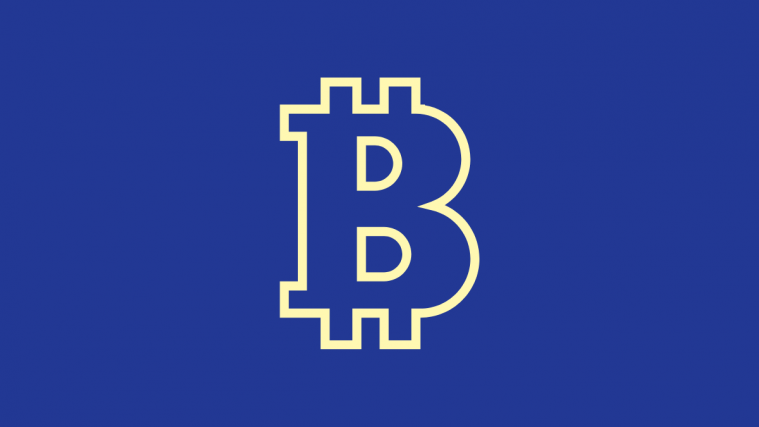While Bitcoin has become a household name in the cryptocurrency space, many would-be entrants into the cryptocurrency market suddenly find themselves confronted with a plethora of similarly named Bitcoin derivatives — Bitcoin Cash, Bitcoin SV, Bitcoin gold, Bitcoin diamond — to the casual observer the list seems almost endless.
Are these all Bitcoin? Or these mere counterfeit altcoin knockoffs of the real McCoy?
Related: Why is Ethereum Dropping? 3 Top Reasons
Differences between Bitcoin and Bitcoin Cash

Down below we’ll take a look at Bitcoin Cash, the largest Bitcoin relative by far, and examine what separates it from its predecessor.
What is Bitcoin Cash?

Bitcoin Cash is a digital currency based on a separate blockchain that split from the original Bitcoin Blockchain in August 2017 via a hard fork. Bitcoin Cash was created to address some of the scalability issues inherent to Bitcoin and many other first-generation blockchains — specifically transaction speed, and high fees.
Bitcoin Cash is, at time of this writing, the 13th largest cryptocurrency by market capitalization, currently valued at somewhere around $470 per coin — less than 1% of Bitcoin’s current value of over $52,000. In all meaningful respects, Bitcoin Cash operates exactly like Bitcoin — solely as a medium of exchange — but with a few salient tweaks that we will go into next.
In case you’re unaware of how a hard fork works in blockchain, here’s a quick reminder: a hard fork involves splitting a blockchain’s transactional history in two from a common point – reminiscent of a fork in the road In which two paths diverge. This generally splits up a cryptocurrency’s community and, despite being considered a significant headache for both developers and the stakeholders in the currency, is currently the only choice for developers to add significant functionality or changes to a cryptocurrency’s design. This is due to the immutable nature of the blockchain; you can’t so much as update a blockchain as you can create a new one.
Related: How to Buy Bitcoin on Cash App
Why Was Bitcoin Cash Created?

Bitcoin Cash was created to address several key scalability issues facing Bitcoin — chief among them, transaction speed. Centralized payment gateway Visa is capable of processing somewhere in the neighborhood of 1700 transactions per second, with most individual transactions completing in a matter of a few seconds for the end-user. Bitcoin, on the other hand, can only process 7 to 10 transactions per second, with transactions taking at least a few minutes for the individual.
During Bitcoin’s big boom in 2017, this dearth in transaction speed only further plummeted under the weight of high traffic, with some transactions taking days at a time to be confirmed and validated. This bottleneck also drives up transaction fees which for years had hovered around a dollar; at the height of the boom in 2017-18, transaction fees peaked at over $50 per transaction and today stand somewhere in the neighborhood of $15.
These lengthy transaction times and incredibly high fees stand as a significant obstacle between Bitcoin and widespread, mainstream acceptance. It’s hard to envision yourself buying a loaf of bread using Bitcoin if the loaf of bread costs $2.99 and the transaction fee is $15. You also can’t exactly stand around at the register for possibly hours or days at a time, waiting for the transaction to be validated. But, if these challenges cannot be solved, it becomes harder to imagine Bitcoin as a full-fledged medium of exchange on par with a traditional Fiat currency.
But addressing these problems isn’t easy.
They stem largely from the foundational design of Bitcoin itself – specifically its 1MB block size. The blockchain serves as a historical record of transactions and is considered an incredibly secure ledger system due to its decentralized nature and the consensus algorithms that ensure its accuracy. To confirm a transaction, a Bitcoin miner has to expend significant amounts of computational power to solve a cryptographic puzzle that must then be verified by the entire network as correct. These transaction histories are added in “blocks” of data to the blockchain where they are set in stone in chronological order for all the world to check and verify. Each block on the Bitcoin blockchain stores one megabyte of transactional data.
This is where the key difference between Bitcoin and Bitcoin Cash lies. Bitcoin Cash raises this one megabyte block size to a total of 32 MB, allowing more transactions to be added at once. This seemingly simple change, however, significantly increases transaction speed and lowers fees, making it much more efficient than Bitcoin vanilla while bringing in a few other considerations, both positive and negative.
Related: Nerdschalk Explains: What is NFT Crypto?
Bitcoin Cash Advantages

The primary advantage of Bitcoin Cash is the aforementioned uptick in transaction speed. The current estimate for Bitcoin Cash transaction speed is something like 116 transactions per second – over 15 times as fast as the original Bitcoin network. This in turn frees up the bottleneck that can drive up transaction fees; the current block fee for Bitcoin Cash is $0.0023, compared to Bitcoin’s $10.40.
A byproduct of these lower transaction fees is that it makes Bitcoin Cash a better option for smaller, more frequent transactions than the Bitcoin network. Kind of like, well, cash. For example, it’s easier to imagine purchasing that three-dollar loaf of bread for a transaction fee of $0.0023, than it is $10.40. This helps, in part, to reliably envision a future where Bitcoin — in some form — is as readily accepted as USD.
Bitcoin Cash Disadvantages

One of the chief concerns of onlookers regards to the increased block size relates to the processing power required to validate transactions. The Bitcoin network already uses more energy than the entire country of Argentina due to the Proof of Work consensus algorithm that the Bitcoin at work employs. As the Bitcoin network grows, the difficulty setting of these cryptographic puzzles that miners race to solve continually increases proportionate to the amount of computational power available. Some argue that the larger block size could lead to an increased barrier to entry for individuals to serve as validators, leaving the field open to exclusively larger, more resourceful entities.
This would promote the exact sort of centralization that blockchain was designed to prevent.
The more salient problem facing Bitcoin Cash is the lack of confidence in the currency compared to Bitcoin. Bitcoin Cash suffers from comparatively low acceptance relative to its predecessor, meaning lower liquidity and tradeability. This stands as the primary obstacle between Bitcoin Cash and the mainstream adoption that the original Bitcoin is beginning to increasingly enjoy.
Finally, the major problem for the Bitcoin miners is that while the Proof of Work algorithm is essentially identical to Bitcoin’s, the fact that Bitcoin Cash is currently worth less than 1% of Bitcoin makes mining that much less profitable. By disincentivizing the miners who validate transactions and build the blockchain, the entire system is thrown in doubt – only further exacerbating the aforementioned problems of centralization and lower market penetration, and vice-versa.
Should I Buy Bitcoin or Bitcoin Cash?

While Bitcoin Cash certainly has its own fair share of advantages over Bitcoin, the coin is currently in a state of downturn compared to what many hoped it would be by now – a viable contender for market dominance. But just because Bitcoin Cash is well below the market capitalization it debuted at (achieving third place in terms of total market-cap on its first day) and is priced at a fraction of what it was just a couple years ago, doesn’t necessarily mean a savvy investor cannot find an opportunity.
After all, the time to buy isn’t when prices are high, but right when they’ve hit rock bottom and are set to rise again. And even if it never makes a meteoric return to the impressive values Bitcoin Cash once boasted of, adventurous day traders and swing traders can still make use of the faster transaction speed to scalp off margins within the daily and weekly fluctuations of the currency. So it really depends on your own appetite for risk, your ability to understand the market, and your timeframe.
Warren Buffet once said that investors should “be fearful when others are greedy and greedy when others are fearful.”
Got more Bitcoin Cash questions? Feel free to shoot ’em at us in the comments below, or check out our Bitcoin archives for more guides, explainers and walkthroughs.
RELATED
- Nerdschalk Explains: What is NFT Crypto?
- What Is Polkadot and Why Is It More Than Just a Crypto
- Blockchain: Hard Fork vs. Soft Fork Compared: All You Need To Know
- What Is Coin Burning? All You Need To Know
- What is One-Way Hashing?
- How to Get Money on Cash App
- How to Transfer Money From Cash App to Bank






